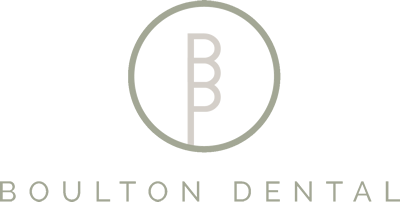
27 Mar I brush and floss — why have I been diagnosed with periodontal disease?
I brush and floss — why have I been diagnosed with periodontal disease?
Sometimes, patients feel a little shocked or disheartened when they learn they have gum disease (otherwise known as periodontal disease). They brush and floss to the best of their ability but still get this diagnosis!
We know this diagnosis can be a bit of a let down, but there are a few reasons why you may have been diagnosed with periodontal disease. Let’s break it down.
Why have I been diagnosed with periodontal disease?
Our mouth is full of bacteria — it is a constant battle between health and disease. This is why brushing and flossing are so important to keep the number of bacteria in the mouth in check.
An overgrowth of bacteria (dental plaque) will lead to inflammation of the gums, which is called gingivitis. Gingivitis will present with puffy gums, bleeding when brushing or flossing, and bad breath.
Gingivitis does not cause permanent damage to the gums and bone supporting the teeth. Still, if gingivitis is not taken care of with improved oral hygiene in a susceptible person, it will develop into gum disease.
The importance of preventative dental care
Unfortunately, we don’t know you have gum disease until you have it, which is why prevention is so important.
There are factors that can put you at higher risk of developing gum disease, such as:
Uncontrolled diabetes
- Medical conditions
- Medications
- Family history
- Smoking
If we can prevent gingivitis from happening with good oral hygiene and know your risk factors, we can try the best we can to prevent the disease from occurring and make sure we arm you with all the information and techniques possible to do your best at home.
We disclose the plaque before we clean patients’ teeth so you can see where you are missing with your toothbrush and floss in vibrant colour. This gives you the best chance at improving your oral hygiene for the future.
How do I know if I have periodontal disease if I haven’t been diagnosed?
Gum disease in the early stages generally doesn’t hurt and can go on silently in the background. Patients often don’t know they have gum disease or know the signs to look for.
It is important to understand that bleeding gums are not normal, nor does it mean you’ve brushed or flossed too hard. Bleeding gums means there is an overgrowth of bacteria, and the gums are letting you know they are infected!
When teeth become mobile and move, bad taste occurs, gums recede, and gum disease becomes advanced, it is more difficult to treat. This is why having six or 12 monthly hygiene appointments is so important, so we can see early signs of disease and treat this before it turns nasty.
If you suspect you are suffering from gum disease, call our lovely front desk staff to make an appointment with one of our university trained oral health therapists for an assessment, diagnosis and treatment plan.

Sorry, the comment form is closed at this time.